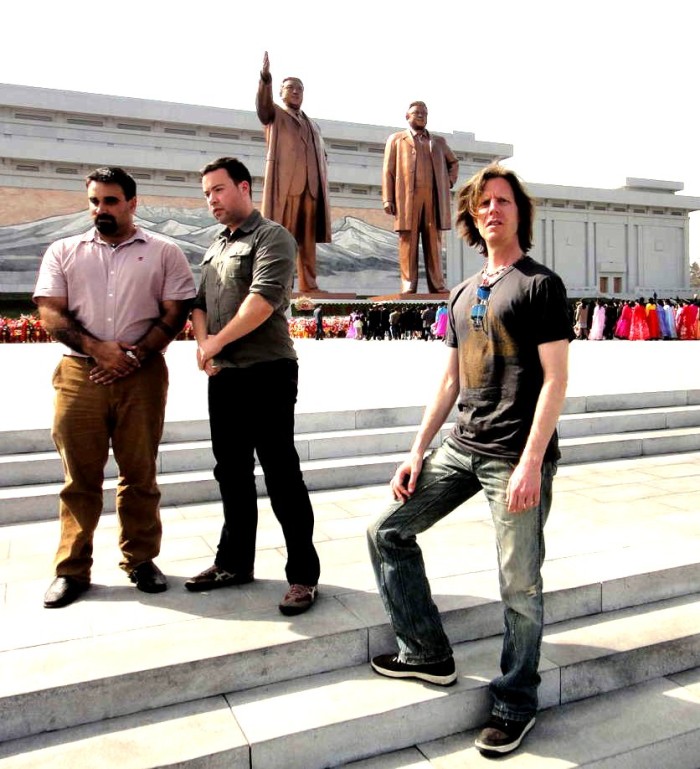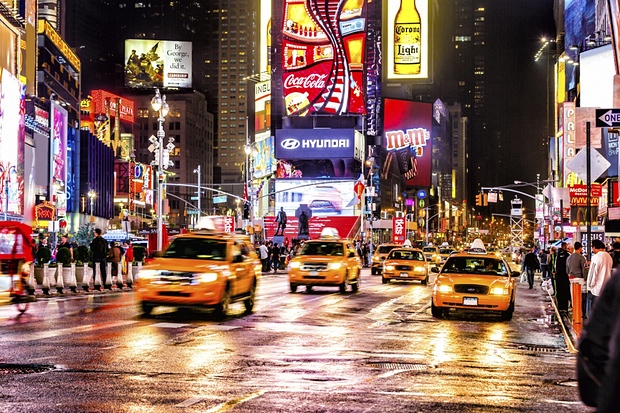Op/Ed Fridays: Banning billboards and outdoor advertising
Articles like “Can cities kick ads? Inside the global movement to ban urban billboards” remind me of North Korea, where I saw pictures of Kim Il-Sung and Kim Jong-il in most rooms of every building I entered.
I wondered, “how does it affect someone’s life to see those pictures every day, everywhere?” Then I realized people there weren’t comparing their environments to ones they didn’t know about. The images probably faded into their background. The North Korean government knows that people not consciously noticing the pictures doesn’t stop them from being effective. They influence people. I can only speculate the effects, but the images must give power to the state.
As I kept thinking, I thought, “I wonder if anything in my environment affects me so unconsciously. If so, what?”
Then it hit me that North Korea has almost no commercial advertising. A quick glance around me shows dozens of objects with logos and advertising on them. Forgetting about the content of the messages, the ubiquity and goals of making themselves a part of your life, home, and every space they can seem similar between the Kims’ pictures and our advertising.
Until you go to a place without ads to realize what we’ve created. If these monuments (behind us) glorify and empower their state

what do you make of Times Square:

Could we not say it’s glorifying and empowering something, say the market?
I didn’t ask for any of those ads any more than a North Korean asked for the pictures. I can try to block them out, but no one can. What does it say we as a culture value when junk food and credit cards dominate our landscape? When you can’t escape people trying to pry into your business? When we give them so much power to keep doing it?
If we glorify and empower a market, are we not glorifying and empowering something else? How about nature, art, education, and face to face communication?
I made my living from applying my invention to outdoor advertising. I still own a significant share of the company. I think about my impact on the world, of bringing another medium for advertising into a new space. Though nearly every rider I’ve ever heard interviewed about it liked the medium because it covered a grimy wall and not an outdoor vista, I still have reservations.
I’ve seen videos of cities with strongly limited billboards. Stores could only have small signs indicating their existence. No large billboards could generate demand to people just going about their distance. What companies want to generate demand out of nothing? Look at the Times Square picture: candy, alcohol, sugar water, fast food, cars, … you know the crowd. People who profit from making you fat, lazy, unhealthy, uneducated, and so on.
I love New York City and I love Times Square, and I don’t think it would lose its appeal without all that advertising. The appeal would have to change, and that’s what entrepreneurs figure out—how to create value for people—if we banned ads there. I’d want all those pictures of the Kims removed from all those places in North Korea, so why not our analog here?
You know the answers, but I recommend doing the exercise of answering why we have ads for
- Fast food but not broccoli
- TV shows but not great works of literature
- Cell phones but not setting time aside for a conversation with an old friend
- Politicians but not learning about great historical figures
- Televised sports but not tossing a ball around with friends
- Jet flights to distant locations but not learning to appreciate your community
- Mood altering drugs but not developing skills to handle stress
- Clothes to exercise in but not more parks to exercise in
- Movies but not organizing a community to stage a neighborhood play
You get the idea.
My question is not what do we give up if we were to legislate removing all those ads, assuming done reasonably democratically, but what would we gain.
Read my weekly newsletter

On initiative, leadership, the environment, and burpees